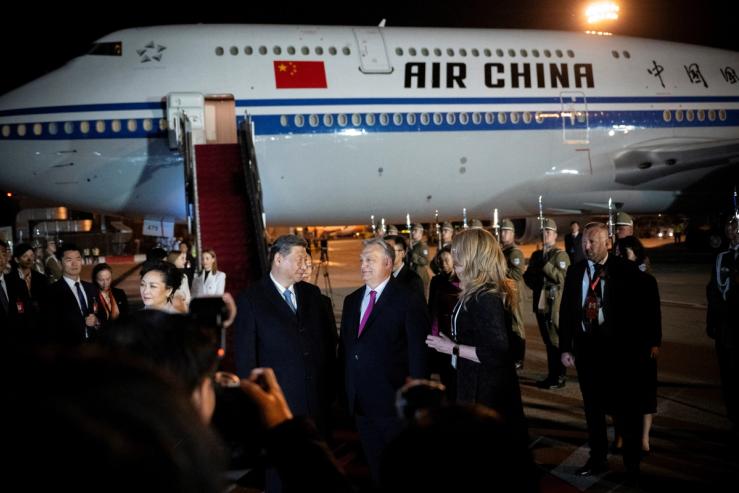The News
Chinese leader Xi Jinping wrapped up his Europe tour with a visit to Budapest, where he hailed his deepening relationship with Hungarian Prime Minister Viktor Orbán.
“We have gone through hardships together and defied power politics together amid volatile international situations,” Xi wrote in an open letter to Hungary on Thursday, calling the partnership between Budapest and Beijing “as mellow and rich as Tokaji wine.”
The closeness between Xi and Orbán stands in stark contrast to both leaders’ relationships with the European Union. Xi’s earlier stop in France was comparatively tense, with French President Emmanuel Macron and EU Commission President Ursula von der Leyen pressing him to support Ukraine and change China’s approach to trade.
SIGNALS
China’s partnership with Russia scrutinized during Xi visit
China and Russia have a “no-limits partnership,” and Beijing has refrained from condemning Moscow for its full-scale invasion of Ukraine. That has been a point of contention between China and the West, with ties becoming “confrontational” in recent years, the South China Morning Post noted. Chinese analysts blame the West for worsening ties between Europe and Beijing: Wang Yiwei, director of the Centre for European Union Studies at Renmin University of China, told the SCMP that “when they realised economic sanctions could not defeat Russia, they turned to blame China ... it is the West that has pushed Russia closer to China.”
Xi aimed to boost Europe ties and show divide over US
Xi likely hopes his visit to Europe mitigated some of the damage that has been done to China-Europe ties in recent years, preventing them from fraying further, like they have with the US, wrote Yu Jie, a senior research fellow on China at Chatham House. Xi strategically picked France, Hungary, and Serbia for his tour, she noted: “Xi’s visits will serve to demonstrate division within Europe over the war in Ukraine and US relations.” Meanwhile, “the trip also shows the extent to which China’s protracted geopolitical competition with the US has already reduced Beijing’s choice of European partners and consumers.”
Trip was largely ‘unproductive’
Xi eschewed the opportunity to strengthen ties with Europe, instead choosing “to sow divisions,” the Financial Times noted. The Chinese leader’s trip to Serbia aligned with the 25th anniversary of NATO’s bombing of Belgrade, and Xi used the occasion to criticize the alliance. In Hungary, Xi was able to highlight his strong ties with one of the most disruptive members of the EU. “Xi seemed to think he could head off the risk of tariff barriers by exploiting Europe’s faultlines,” the FT’s editorial board argued. “Yet his confidence underestimates the extent to which the majority of EU countries now see China both as a security threat” and an economic one, it added.



